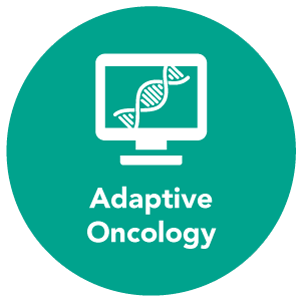An OICR initiative has reduced the turnaround time for whole genome and transcriptome sequencing in pancreatic cancer studies from 45 to 14 days.
Every day matters in the race against cancer.
Patients need access to the best, most complete information about their cancer so they can receive the best possible treatments. And the earlier they get it, the better their chances.
Speed is especially important in pancreatic cancer, where even a few weeks can dramatically change a patient’s prognosis.
That’s what makes a new ‘ultrarapid’ process for genomic testing pioneered by OICR potentially transformative for cancer care in Ontario and around the world.
Thanks to a collaborative effort involving three OICR programs — OICR Genomics, Tissue Portal and PanCuRx (a translational research program in pancreatic cancer) — the Institute was able to reduce the time it takes to deliver clinically actionable results from whole genome and transcriptome sequencing (WGTS) from about 45 days to 14.
WGTS in cancer is an advanced test that involves reading and analyzing all genetic information in a tumour sample, comparing it to a sample of normal tissue, and analyzing the differences between them. Those genetic differences, often called ‘biomarkers’, can tell doctors how that tumour might grow and respond to different treatments.
It’s a resource-intensive process involving complex machinery, sophisticated analysis, and coordination among a large team, which is why it takes an average of 45 days from when a tissue sample is received at OICR to when a clinical report is issued. Because diseases like pancreatic cancer move quickly, that’s usually too long to influence a patient’s first course of treatment, and that means missed opportunities to treat patients before their cancer spreads.
But getting actionable clinical results from WGTS in just two weeks could change everything.

“A two-week clinical turnaround time would be game-changing for patients and groundbreaking in the cancer care community,” says Dr. Robert Grant, a Medical Oncologist at Princess Margaret Cancer Centre (University Health Network) and Clinical Co-Lead of PanCuRx at OICR.
To achieve this turnaround time, OICR Genomics undertook a year-long reorganization of its testing and reporting protocols. Working closely with the PanCuRx and Tissue Portal teams, they optimized existing protocols and developed new methods to process and analyze samples and deliver reports.
This work builds on years of successful optimizations by OICR Genomics, which was the first lab in North America to have a WGTS assay accredited by the three major accreditation organizations: CAP, CLIA and Accreditation Canada Diagnostics.
“This collaborative effort to offer high-level genomic testing and analysis in a fraction of the time is a great example of how we’re working together to strengthen cancer research in Ontario and ultimately improve the lives of cancer patients,” says Dr. Trevor Pugh, a Molecular Geneticist and Director of OICR Genomics, as well as Senior Scientist at the Princess Margaret Cancer Centre.
The ultrarapid pipeline has been trialled in two pilot studies and is currently being integrated into PanCuRx clinical trial design.
PanCuRx already changed the landscape in pancreatic cancer research. The program’s COMPASS clinical trials were among the first to show that genome sequencing could be harnessed to personalize treatment for pancreatic cancer patients.
But only half of patients diagnosed with advanced pancreatic cancer live long enough to receive second-line treatment, so personalized therapies will have the most impact if used to guide initial therapy. This process offers the potential to inform a patients’ first-line treatment, which usually begins within two to three weeks of their initial assessment.
Grant says that having WGTS results could tell doctors which of the standard chemotherapies would work best for a given patient, and also identify other biomarkers that could be targeted with personalized therapies.
“Ultrarapid WGTS could shift the entire paradigm of precision oncology — enabling more timely, personalized treatment strategies and sparking new avenues for targeted therapies in pancreatic cancer and beyond,” Grant says.
While this faster testing protocol is currently only being offered to support PanCuRx trials, OICR Genomics ultimately hopes to offer it for other types of cancer within clinical trials and ultimately within routine clinical care. The programs are also working to further reduce the turnaround time.





